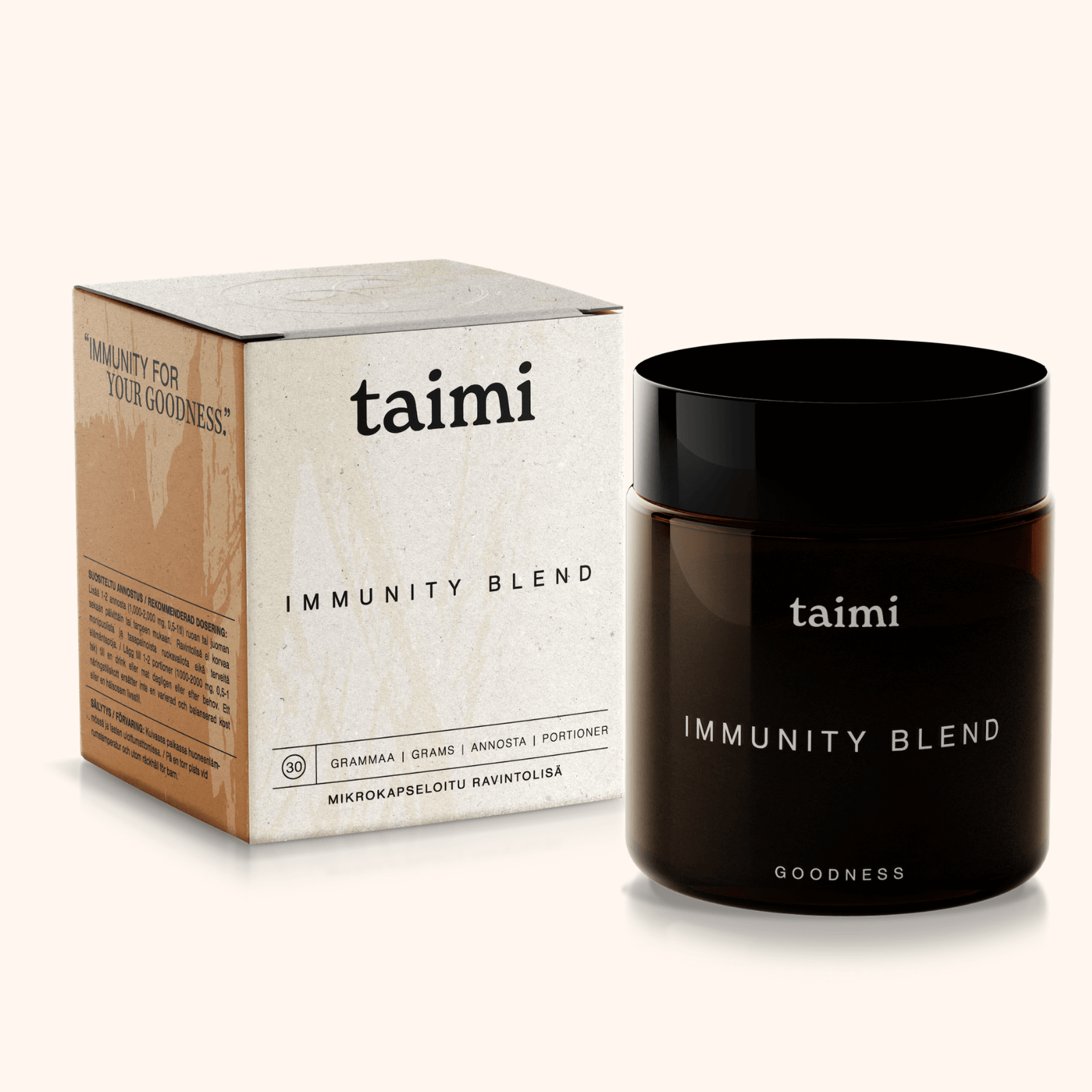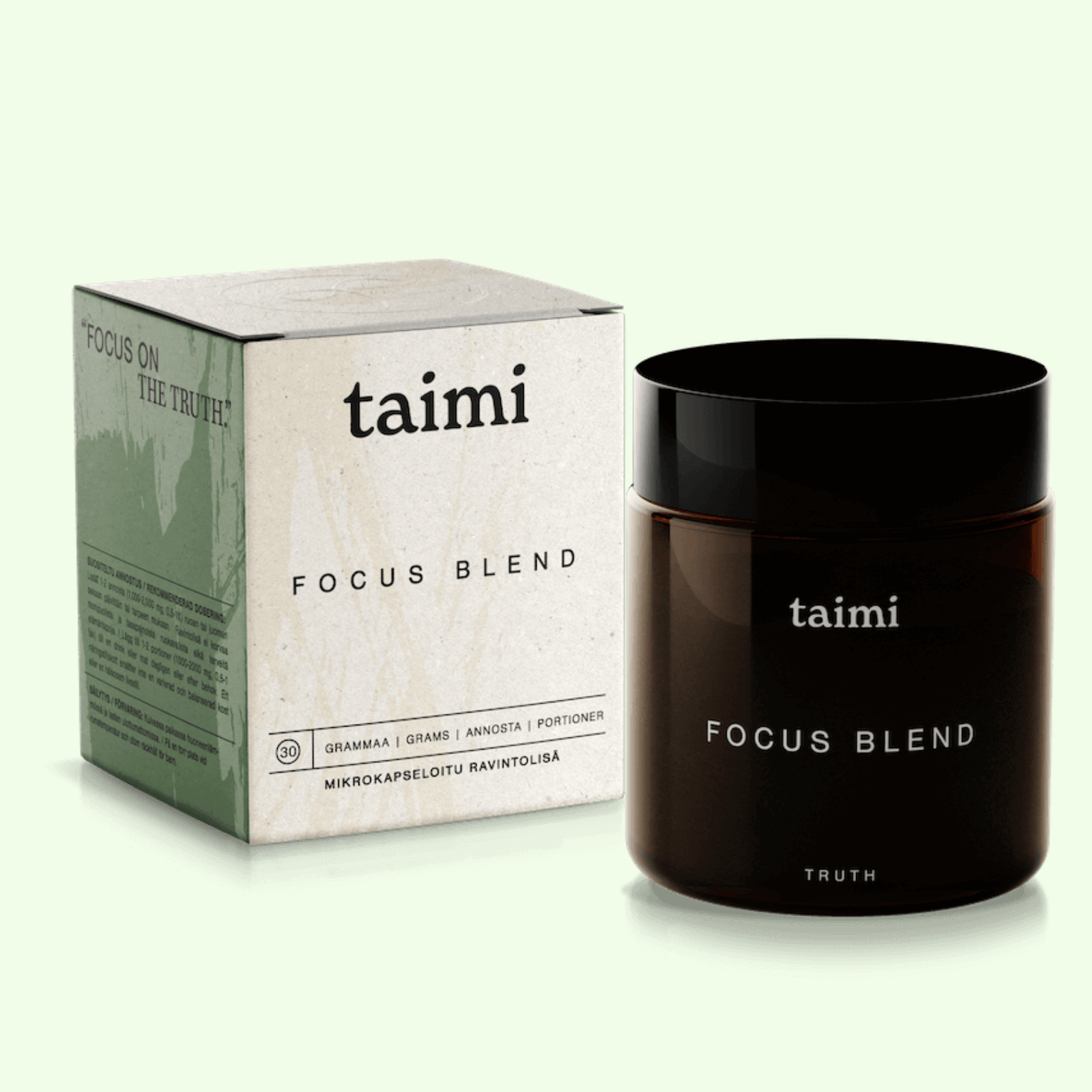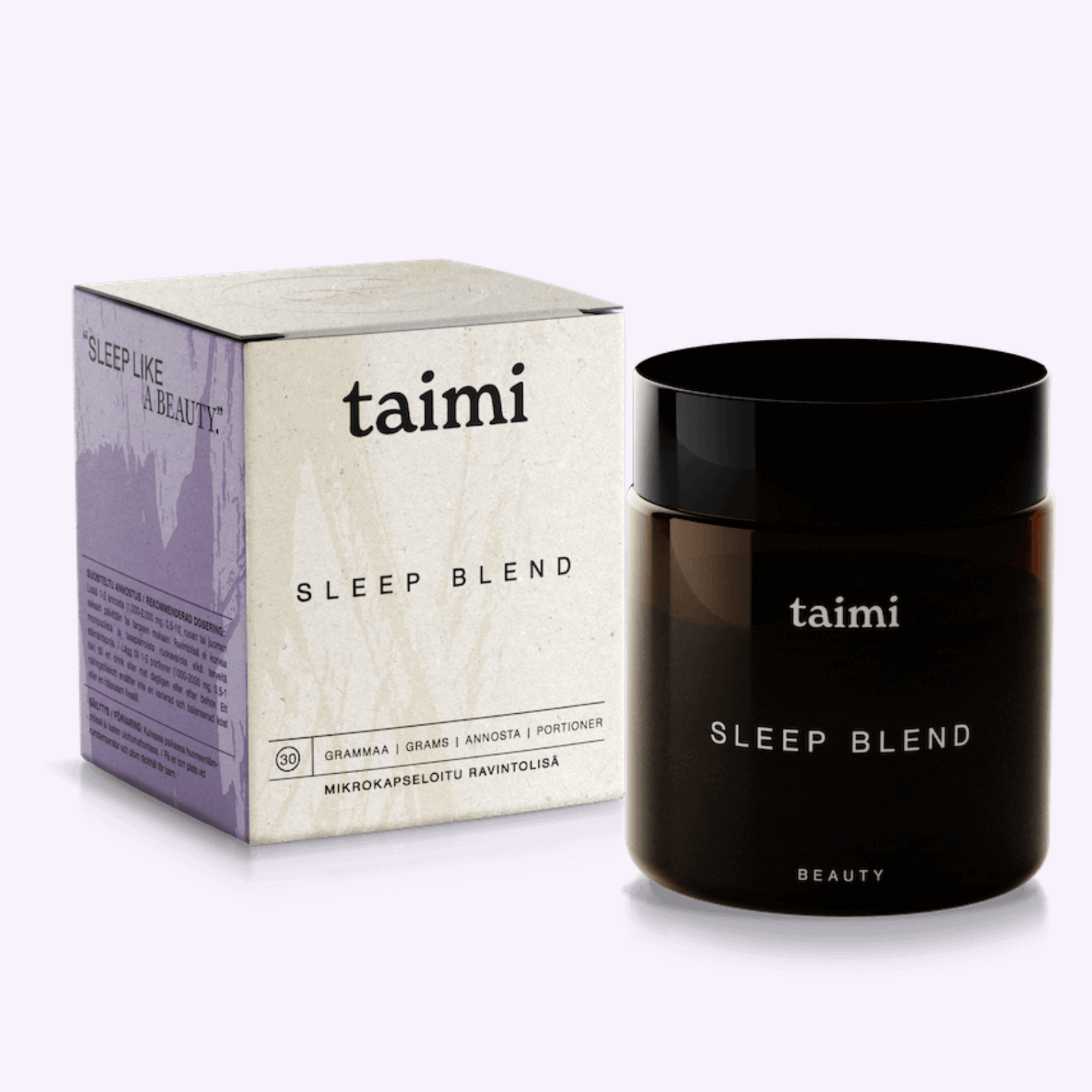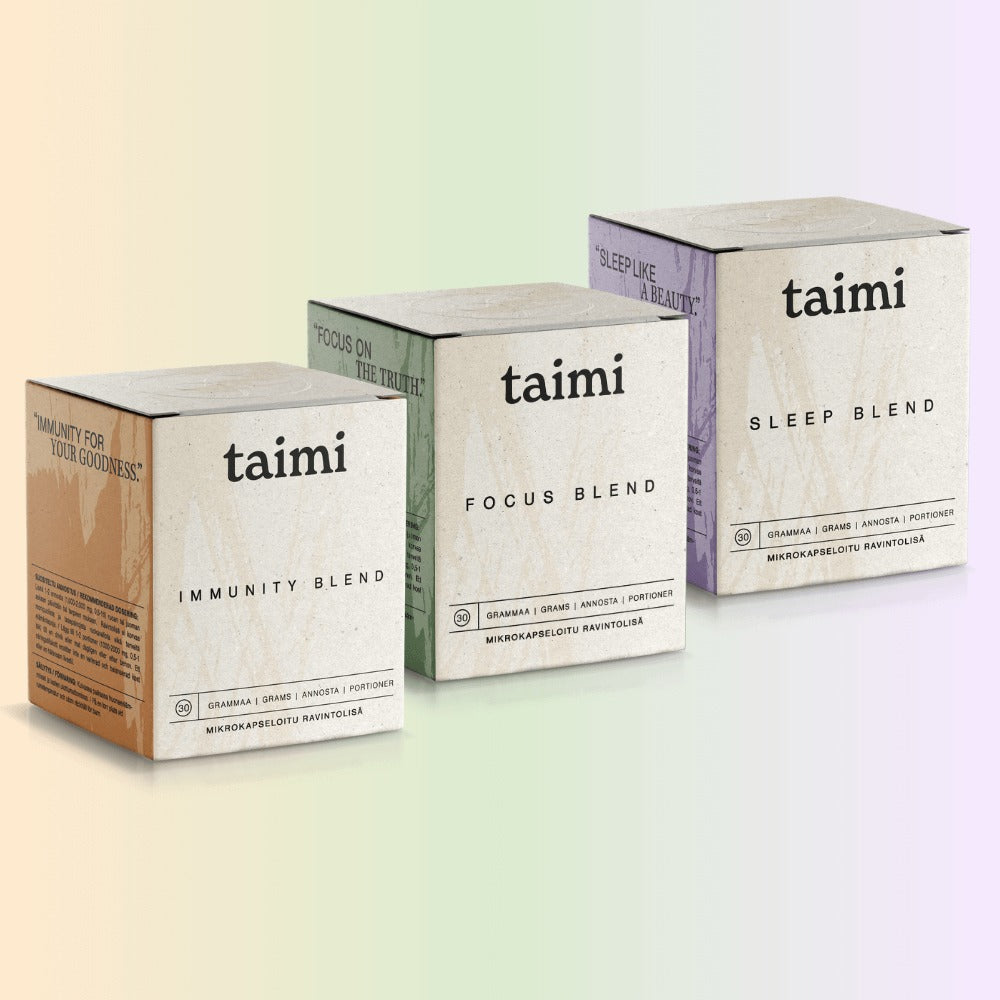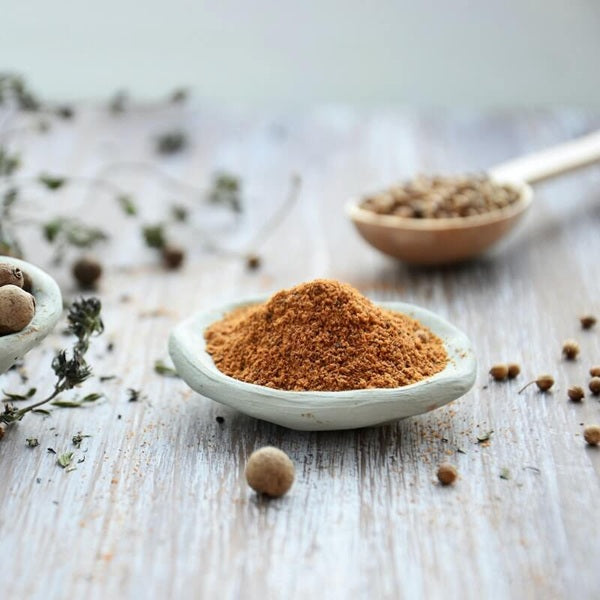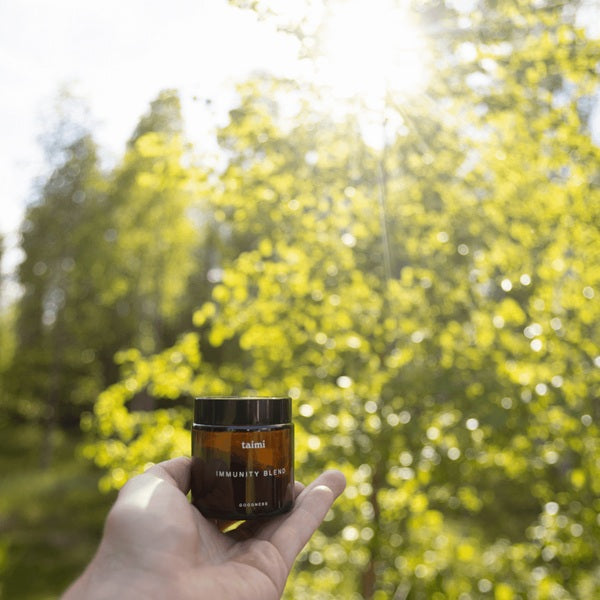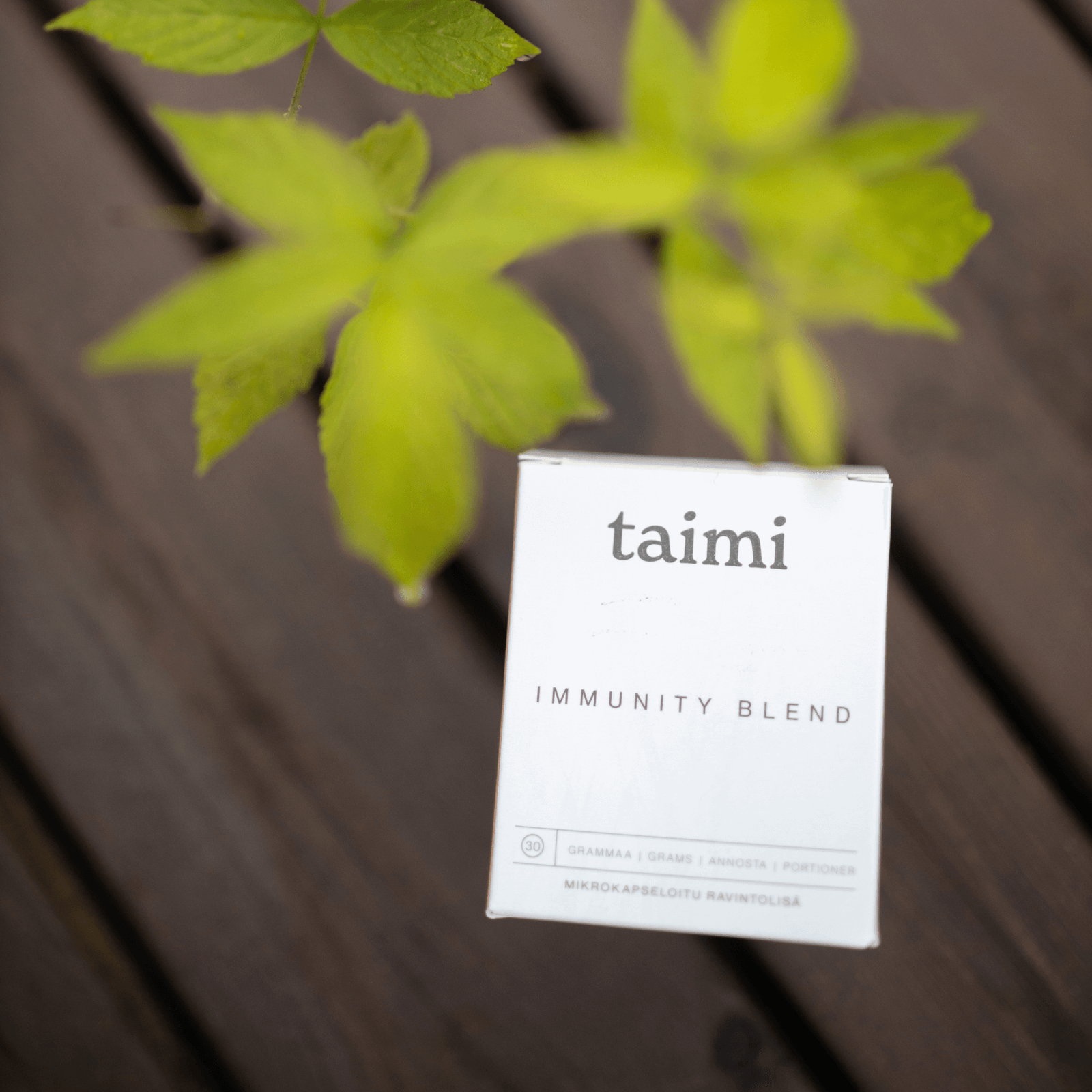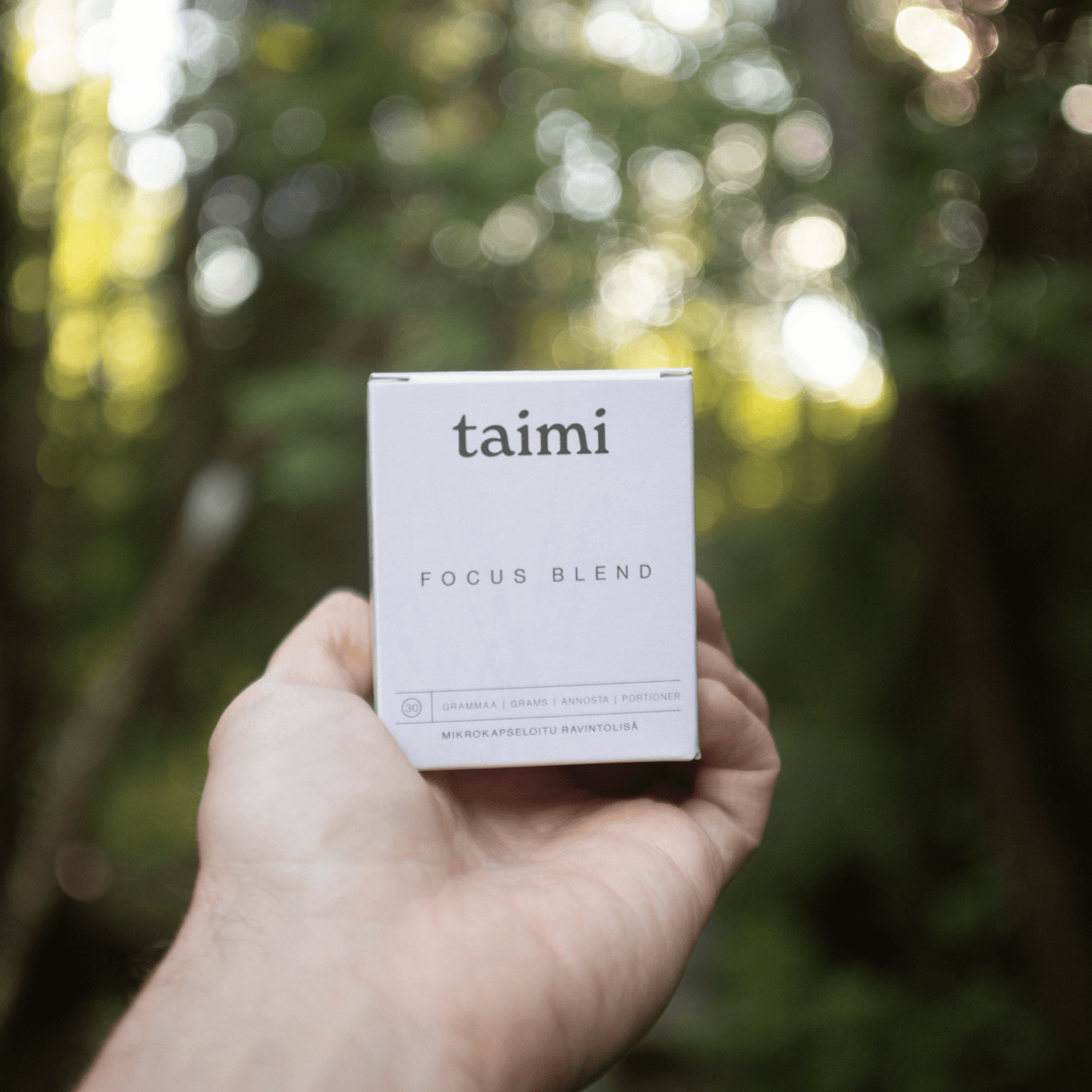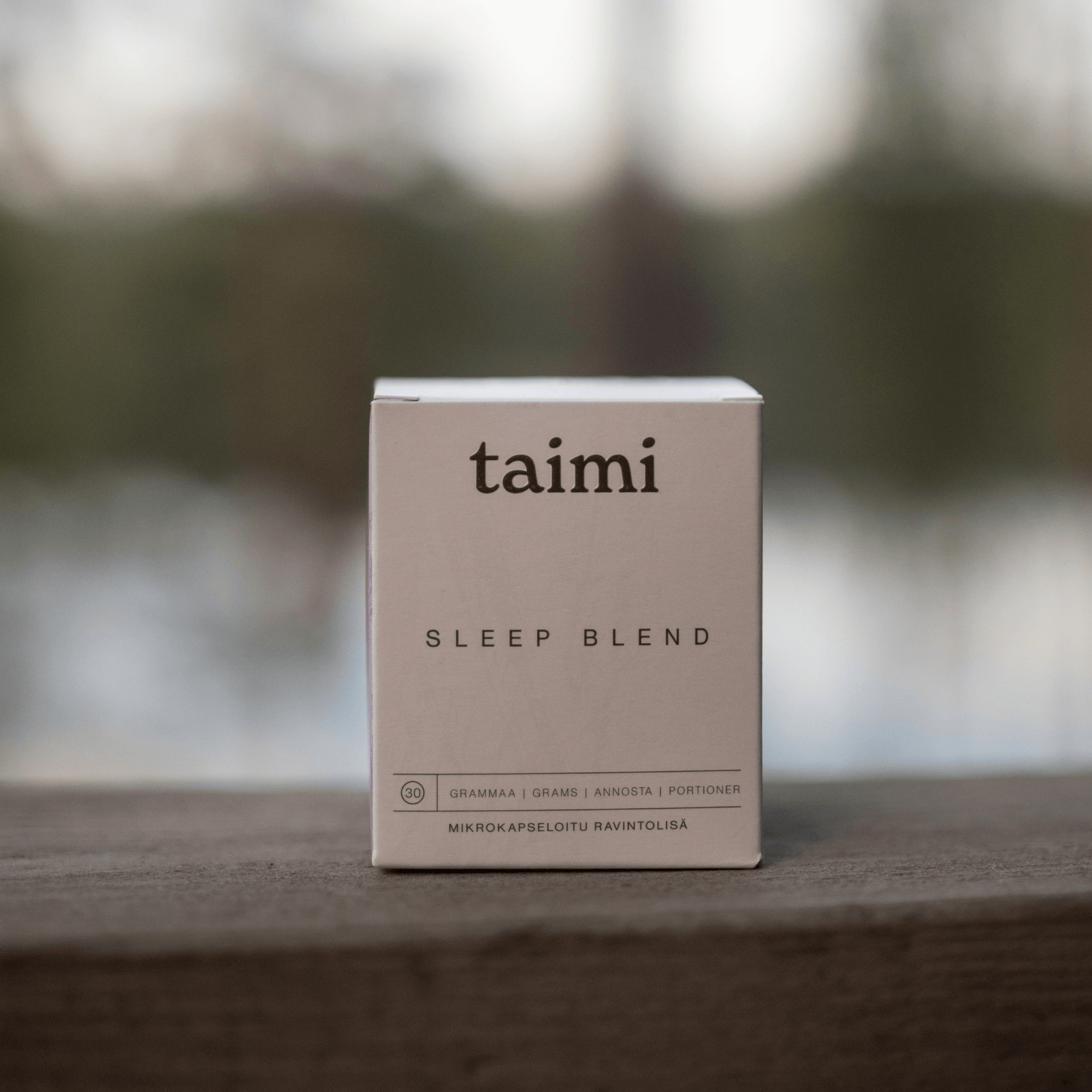Table of contents
Vitamin B9, i.e. folate, is an essential nutrient for health. Folate is best known for its effect on health during pregnancy and the development of the fetal neural tube, and the use of a folic acid supplement is therefore important for all women planning a pregnancy.
What are the benefits of vitamin B9?
Vitamin B9 is an important water-soluble nutrient and plays a key role in many body functions. It helps in cell division and the formation of new blood cells by copying and creating DNA. It also helps the body use vitamin B12 and certain amino acids.
Studies show that vitamin B9 deficiency can have serious consequences, such as fatigue, painful mouth ulcers, and even an increased risk of birth defects such as heart problems, neural tube defects, spina bifida, and anencephaly.
Many doctors recommend the use of folic acid supplements during pregnancy to ensure nutrient requirements and to protect against pregnancy-related complications, such as neural tube defects.

Adequate intake of vitamin B9, or folate, is important for all women planning pregnancy to prevent neural tube defects and other complications during pregnancy.
To prevent dangerous birth defects caused by folate deficiency, many countries have strict regulations requiring food manufacturers to supplement certain products with folic acid. In Finland, there is no obligation to supplement food with folic acid, but the Food Agency is aware that the folate intake of Finns is often insufficient. The Food Agency recommends starting the use of a folic acid supplement two months before a planned pregnancy to prevent the formation of a neural tube closure disorder. The use of a folic acid supplement is recommended to be started approximately two months before the planned pregnancy.
According to research, this nutrient also promotes the improvement of cognitive functions and protects against depression and Alzheimer's disease. It can also help maintain bone health, reduce symptoms of restless legs syndrome, and promote nervous system health .
Folic acid or folate?
What is the difference between folate and folic acid? It is estimated that about 35 percent of adults and 28 percent of all children in the United States use folic acid supplements . Also in Finland, folic acid is one of the most commonly used supplements. The terms folate and folic acid are often used interchangeably, but they do have significant differences. Folate is a naturally occurring and essential vitamin, while folic acid is a synthetic form of folate.
Folate is naturally absorbed in the small intestine and the body uses it efficiently. Similarly, folic acid developed in the 1940s requires the presence of the dihydrofolate reductase enzyme, which is relatively scarce in the body.
Can you get too much folic acid? Yes you can. Many of us are not able to metabolize folic acid very well, so increased amounts of this synthetic nutrient begin to accumulate in the bloodstream. Side effects of folic acid accumulated in the body include changes in sex hormones, difficulty concentrating, sleep disorders, mood changes and deficiencies of certain nutrients, such as vitamin B12.
According to some studies, high levels of folic acid in the blood are even linked to the development of cancer. Studies have indeed found that increasing high folic acid concentrations promotes the growth of cells and tumors that predict cancer. This is unfortunate considering that folic acid is a very commonly used supplement.
The USDA claims that the bioavailability of folic acid is higher than folate from foods. At least 85 percent of folic acid is estimated to be bioavailable when consumed with food, while only about 50 percent of folate naturally present in food is bioavailable. This has both good and bad sides, as the amount of the nutrient in the blood can easily remain too high, but on the other hand. it may help prevent certain deficiency symptoms.
It is safest to meet your folate needs from natural sources or take supplements that use folate instead of folic acid.
Health benefits of folate
1. Supports a healthy pregnancy
Folate is known to be one of the most critical vitamins for a healthy and vibrant pregnancy, which is why it is added synthetically to almost all prenatal vitamin supplements. For pregnant women, folate deficiency is particularly risky as it can lead to neural tube defects such as spina bifida, anencephaly, limb deformities and heart complications.
Folic acid supplementation has been shown to prolong the average pregnancy time and reduce the risk of premature births. However, there are other risks associated with folic acid, which is why a folate supplement is a safer option for many
Folate acts as a coenzyme (or cosubstrate) in the synthesis of nucleic acids (DNA and RNA) and in the metabolism of amino acids. Since folate is needed to copy DNA and build new cells, it's easy to see why low levels lead to various types of developmental problems, even ones that remain a problem after the baby is born and continues to grow.
In order to prevent neural tube closure disorder, folic acid is a key part of various supplements during pregnancy. As mentioned above, synthetic folic acid is not as useful or safe an option as adequate intake of folate from foods that naturally contain folate. To ensure a healthy pregnancy, you should eat foods rich in folate, for example dark leafy salads, sprouted beans, avocado and citrus fruits.
In Finland, the Institute of Health and Welfare recommends starting a folic acid supplement two months before the planned pregnancy. The daily need for folate is at least 400 micrograms per day to ensure the healthy development of the fetus.
2. May reduce the risk of cancer
New research shows that folate can help prevent certain types of cancer. A review published by the Department of Medicine at St. Michael's Hospital in Toronto shows that adequate levels of folate in the body can reduce the risk of pancreatic and breast cancer in certain population groups.
Other studies have found that adequate folate intake may also be associated with a lower risk of colon , esophageal , and ovarian cancer . In the NIH-AARP Diet and Health Study , which included more than 525,000 Americans aged 50-71, participants with a total folate intake of at least 900 micrograms per day had a 30 percent lower risk of colon and rectal cancer than those with folate intake below 200 micrograms per day.
Keep in mind, however, that other studies have shown that excessive folic acid intake from supplements and fortified foods may be linked to an increased risk of certain types of cancer. Further research is needed to fully understand the role folic acid and folate play in cancer prevention and development.

Vitamin B9 supports heart and bone health. It is important to get a sufficient amount of it from food. Good sources are dark green vegetables and certain vegetables, especially different types of cabbage.
3. Supports heart health
Studies show that folic acid supports heart health and may help reduce the risk of heart disease.
Higher folate levels are associated with lower homocysteine levels. Homocysteine is a type of amino acid that can increase the formation of blood clots and cause narrowing and hardening of the arteries.
Increasing folate intake can help lower homocysteine levels and prevent heart disease. A 2012 analysis in China found that every 200 microgram increase in folate intake reduced the risk of coronary heart disease by 12 percent.
4. Strengthens bones
In addition to being associated with a higher risk of heart disease, elevated homocysteine levels can also affect bone health. Research shows that decreased homocysteine levels affect bone metabolism, improving bone health.
According to a study conducted in 2014, elevated homocysteine concentration in the plasma is connected to a decrease in folate levels and a decrease in bone mineral density. Additionally, another study published in the New England Journal of Medicine showed that higher levels of homocysteine were a risk factor for osteoporotic fractures in older people.
5. Improves cognitive function and protects against Alzheimer's
Low levels of folate and other B vitamins, such as vitamin B12, have been linked to cognitive decline and dementia. A study published in the American Journal of Clinical Nutrition even found that low folate status was linked to impaired cognitive function in the elderly.
A 2016 study found that folate supplementation was effective in improving cognitive function in elderly people with mild cognitive decline.
Also, a study published in 2005 also found that higher folate intake was associated with a lower risk of developing Alzheimer's disease.
6. Reduces the symptoms of restless legs syndrome.
Restless legs syndrome is a condition characterized by the need to move the legs, especially at night. Although anyone can get restless legs syndrome, pregnant women are more prone to it.
Research shows that low folate levels may be linked to the development of restless legs syndrome, especially during pregnancy. Pregnancy requires more nutrients, which a pregnant woman often does not get enough from just rust. According to an article published in Alternative Medicine Review, giving folate can reduce symptoms of restless legs syndrome.
7. May help prevent depression
Although folate alone is unlikely to prevent depression, a balanced diet rich in vegetables and fruits may act as a natural antidote to depression. In clinical and observational studies, folate status has been associated with depression and poor response to antidepressants. In a study involving 127 patients suffering from major depression, some received folic acid 500 μg per day along with an antidepressant. The results showed that patients receiving folic acid, especially women, improved their depressive symptoms significantly more compared to the placebo group.

Vitamin B9 can help treat depression.
Vitamin B9 / Folate intake recommendation
In Finland, the recommended daily intake of vitamin B9, i.e. folate, is:
|
Issue
|
Ladies
|
Gentlemen
|
The best sources of folate
Ideally, most folate should be obtained from food. Good sources are liver, greens, vegetables and legumes. You can get a lot of folate from these nutrient-dense ingredients, but they also contain plenty of other vitamins and minerals that the body needs.
Below are the 15 best sources of folate:
100g of food contains folate in micrograms (% of the daily intake recommendation, for an adult). Source: Fineli
- Pig liver: 1,391 μg (463%)
- Reindeer liver: 1,226 μg (408%)
- Broiler liver: 1,166 μg (388%)
- Beef liver: 1,070 μg (356%)
- Aduki bean, dried: 622 μg (207%)
- Black bean, dried: 444 μg (148%)
- Kidney: 422 μg (140%)
- Soybean, dried: 370 μg (123%)
- White bean, dried: 364 μg (121%)
- Basil, dried: 310 μg (103%)
- Thyme, dried: 270 μg (90%)
- Oregano, dried: 237 μg (79%)
- Wheat germ: 213 μg (71%)
- Nettle: 194 μg (65%)
- Spinach: 194 μg (65%)
In addition to these, other good sources of vitamin B9 are: chickpea, asparagus, parsley, dried lingonberry, beetroot, carrot, kidney bean, kale, rucola, broccoli and hemp seed.
In other words, a varied diet keeps the doctor away.

Nettle is Finland's own superfood and contains plenty of folate. Many other vitamins have also ended up in nettle leaves.
Vitamin B9 supplement
If you cannot meet your folate needs through food, you have a disease that impairs its absorption, you are pregnant or breastfeeding, your doctor may recommend taking folic acid or folate supplements.
If you decide to use supplements, you should often prefer L-methylfolate instead of folic acid supplements. This is the biologically active form of folate and research suggests it may reduce some of the risks associated with high folic acid intake.
Taimin's Focus Blend contains all essential B vitamins and its vitamin B9 is biologically active L-methylfolate. However, Focus Blend is not recommended for pregnant or lactating women, as it contains other ingredients that may be harmful to pregnancy. Pregnant and lactating women are recommended to use supplement products made especially for that purpose.
>> FIND OUT ABOUT FOCUS BLEND HERE <<
Deficiency and excess intake
https://app.sur Too little folate intake and folic acid overdose can both be harmful to health. Deficiency can cause symptoms such as anemia, weakness, headaches and fatigue. Conversely, folic acid overdose can also be harmful and cause symptoms such as cramps, diarrhea and confusion.
Folate deficiency alone is rare. Because it is usually caused by a poor diet, alcoholism, or nutrient absorption problems, folate deficiency often occurs in combination with other nutrient deficiencies.
Folic acid deficiency anemia, known as "megaloblastic anemia," is the most important clinical sign of low folate and vitamin B12 levels. Megaloblastic anemia results in the production of abnormal and large red blood cells, causing the following symptoms:
- Weakness
- Fatigue
- Pale skin
- Headache
- Irritability
- Premature graying of hair
- Growth retardation
- Shortness of breath
- Palpitation
- Difficulty concentrating
- Weight loss
- Nausea
Pregnant women and women of childbearing age, alcohol addicts and people suffering from malabsorption have the highest risk of folate deficiency . Folate deficiency is also a problem for the elderly, and especially for those with a poor diet or reduced appetite.
Traditional treatment for folate deficiency includes adding folate-rich foods to the diet, and taking a folate supplement if necessary. It is essential to diagnose and correct other possible nutrient deficiencies, such as vitamin B12 deficiency.
High amounts of folate are not dangerous, as excess amounts are eliminated from the body. However, if you are taking a folic acid supplement, it is important to follow the recommended dosage.
Side effects of too much folic acid include :
- Cramps
- Diarrhea
- Complexity
- Skin reactions
- Epilepsy
- Changes in sex drives
- Difficulty sleeping
- Mood changes
Risks and side effects
Folate is a very important nutrient in almost all areas of health, such as red blood cell production and supporting fetal development in the early stages of pregnancy. If you suspect you may be deficient, it's important to talk to your doctor and get your blood tested.
Ideally, you should aim to get most of your folate from foods such as vegetables, offal or legumes. In some cases, a folate supplement is necessary either due to absorption problems or an increased need for the nutrient.
If you decide to use a folic acid supplement, be sure to avoid excesses to avoid its possible side effects. Consuming large amounts can cause convulsions, epilepsy, mood changes and sleep difficulties. It can also mask a vitamin B12 deficiency, which can lead to even more serious health problems if left untreated. Long-term vitamin B12 deficiency can lead to problems such as anemia, fatigue, nerve damage, and even neurological changes.
According to some studies, the enzyme needed to convert folic acid into a usable form works very slowly. It may cause the accumulation of unmetabolized folic acid in plasma and tissues and thus the risk of overdose. Indeed, a high intake of certain supplements may be associated with an increased risk of prostate cancer and colon and rectal tumors .
Summary
- Folate belongs to group B vitamins and has the number 9 (B9). Where do you get folate? You can get it especially from leafy greens, liver, kidneys and vegetables.
- Is folate the same as folic acid? Folate is the naturally occurring safer form and methylfolate is the methylated form of folate used in "high quality" supplements, while folic acid is the synthetic form of folate found in fortified foods and "low quality" supplements.
- What is vitamin B9 used for? Its uses in the body include supporting cell division, replicating and synthesizing DNA, and promoting the growth and development of the fetus. Vitamin B9 is especially needed during early pregnancy.
- What are the health benefits of folate? Possible benefits include reduced cancer risk, improved cognitive function, stronger bones, improved heart health, healthier pregnancy and fetal health, and a reduction in restless legs symptoms.
- What does folate deficiency cause? It can cause, among other things, anemia, growth retardation, heart problems and neural tube closure disorder. Pregnancy is a critical time for adequate folate intake.
- Can you get too much folic acid? Yes you can. Taking too much folic acid from fortified foods or supplements can also lead to several different health problems. Talk to your doctor if you have taken large amounts of folic acid and experience symptoms of an overdose, such as cramps, diarrhea, confusion, skin reactions, changes in sexual desire, difficulty sleeping, or mood changes.

